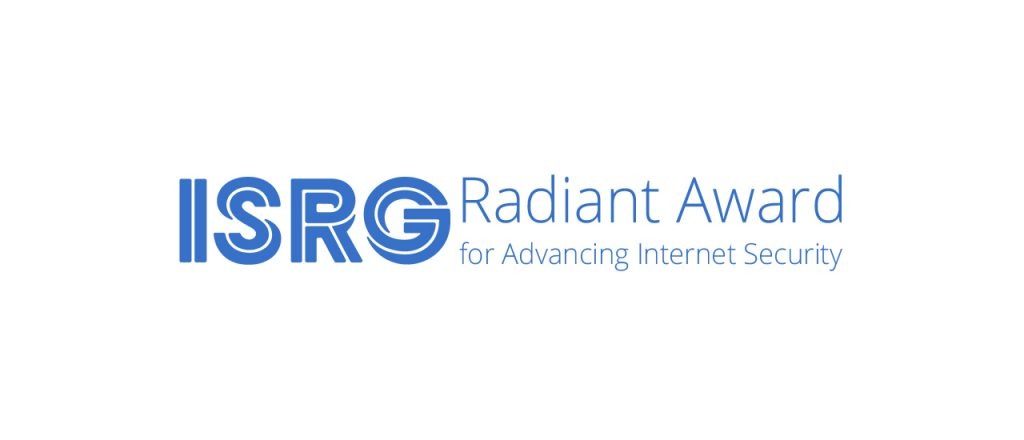SASE: Here’s Where Your Digital Business Network Starts
SASE is emerging in response to the needs of today’s digital business. The digital business is...
Fortinet Snaps Up SOAR Provider CyberSponse
CyberSponse's feature set will further extend the automation and incident response capabilities of...
Telefónica Defies US, Selects Nokia, Huawei for 5G
With the blessing of German authorities, all three of the country's leading operators decided to...
Claudio Jeker Honored by Internet Security Research Group with Radiant Award

This week another Radiant Award has been awarded by the Internet Security Research Group, the folks behind Let’s Encrypt. The award puts the limelight on the heroes who make the Internet more secure and trustworthy each day.

The newest Radiant Award winner is Claudio Jeker, who receives the prize for his work of a BGP4 implementation on OpenBSD. This makes me horrendously enthusiastic. Why?
OpenBSD is a open-software based operating system that is focused on being secure and feature complete. It comes with a set of tools that make it ideally suited to be deployed, for instance, as a secure route server in an Internet Exchange Point (IXP). A route server is a service that an IXP can host in order to make the participating network service providers lives a little easier. They do not have to get the routing information from each other, but can simply talk to this piece of centralized infrastructure. OpenBSD allows this type of infrastructure to be build from commodity components in a scalable and secure way.
With a route server in place, an IXP can take additional measures to secure the Internet, namely by taking the MANRS actions.
Ultimately this would not be Continue reading
Microsoft, NTT Tap Azure, AI to Target Enterprises
The alliance also makes Microsoft’s Azure NTT’s preferred cloud platform for modernizing its...
IBM Security Gives Cloud Identity an AI Boost
IBM Cloud Identity now uses adaptive access capabilities to continually assess employee or consumer...
Money Moves: November 2019
Google buys CloudSimple, challenges VMware Cloud on AWS; Palo Alto Networks announced plans to...
BGP- and Car Safety
The Facts and Fiction: BGP Is a Hot Mess blog post generated tons of responses, including a thoughtful tweet from Laura Alonso:
Is your argument that the technology works as designed and any issues with it are a people problem?
A polite question like that deserves more than 280-character reply, but I tried to do my best:
BGP definitely works even better than designed. Is that good enough? Probably, and we could politely argue about that… but the root cause of most of the problems we see today (and people love to yammer about) is not the protocol or how it was designed but how sloppily it’s used.
Laura somewhat disagreed with my way of handling the issue:
Read more ...VMware, Silver Peak Lead SD-WAN Pack; Cisco, Riverbed Lose Ground
Gartner's latest WAN Edge Magic Quadrant report has VMware and Silver Peak leading that market in...
The Latest Release of CA NetOps Delivers Superior SD-WAN Fault Management
The top reasons to upgrade to the latest release of CA NetOps fault management to ensure successful...
Aviatrix CEO: SD-WAN Is Dead. AWS Killed It
Aviatrix CEO Steve Mullaney says using SD-WAN to connect branch offices to the cloud misses the...
Weekly Wrap: Juniper CTO Bikash Koley Calls It Quits
SDxCentral Weekly Wrap for Dec. 6, 2019: One former Google exec replaces another at Juniper;...
Headcount: Firings, Hirings, and Retirings — November 2019
Juniper CTO Bikash Koley calls it quits; Nokia Kills COO role amid struggles; plus the latest...
Huawei Slams FCC With Legal Appeal
The legal spat comes as Deutsche Telekom has halted all of its 5G plans pending a firm decision on...
Sophos Tracks Kubernetes Vulnerabilities, Adds Threat Intel Platform
The legacy network and endpoint security vendor acquired key pieces of cloud-native technology used...
Enea’s Roland Steiner Discusses Mobile Vendors, UDM, and Why the SaaS Model is Just Better
Roland Steiner’s role as senior VP at Enea has put him at the crest of the 5G wave and for User...
Amazon Detective, McAfee Hunt Down the Baddies
McAfee also teased a yet-to-be-released microsegmentation technology to secure contianer runtimes...
Silver Peak, Versa, Citrix, Aruba Bolster SD-WAN With AWS
Three of the vendors added AWS Transit Gateway network manager support, with the other tapping into...
Online Trust Audit for 2020 Presidential Campaigns Update

On 7 October 2019, the Internet Society’s Online Trust Alliance (OTA) released the Online Trust Audit for 2020 U.S. Presidential Campaigns. Overall, 30% of the campaigns made the Honor Roll, and 70% had a failure, mainly related to scores for their privacy statements. As part of this process, OTA reached out to the campaigns, offering to explain their specific Audit scores and ways to improve them. The campaigns were also told that they would be rescored in mid-November and the updated results would be published in early December. As a result, several campaigns contacted us to understand the methodology and scoring, and several of them made improvements.
Rescoring of all elements of the Audit was completed on 25 November, and the table below shows the updated results since release of the original Audit. Several campaigns have been suspended since early October (Messam, O’Rourke, Ryan, and Sanford, as well as Bullock and Sestak in early December). Campaigns shown in bold in the Honor Roll column made enough improvements to earn passing scores for their privacy statements and thereby achieve Honor Roll status. Campaigns shown in italics at the bottom of the table are new entrants since the Audit was released. Continue reading
Fortinet Extends Cloud Security Into AWS CloudFormation
The integration will permit Fortinet-managed rulesets for AWS Web Application Firewall (AWS...